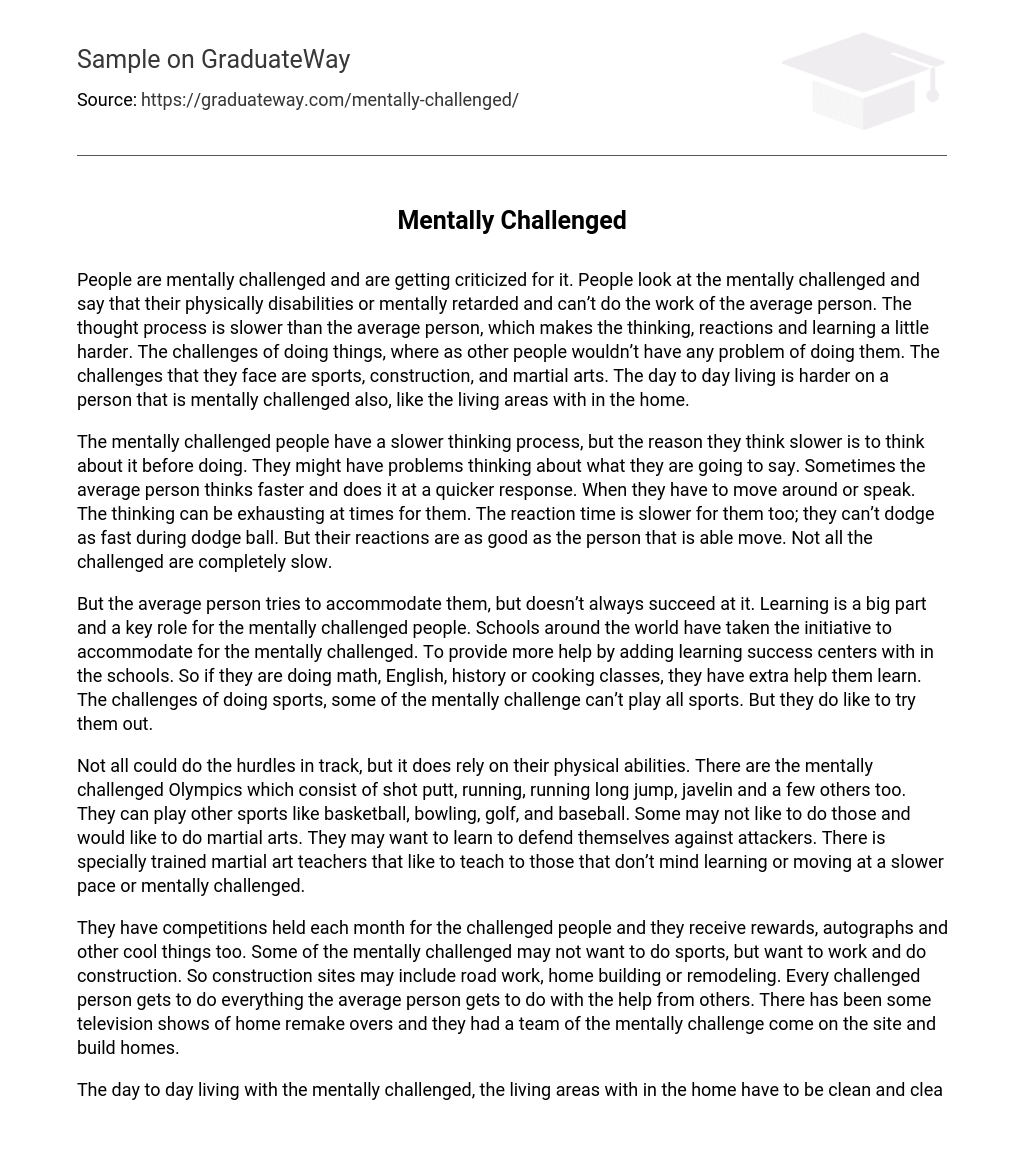People who are mentally challenged face criticism and judgment. Others often perceive them as physically disabled or mentally retarded, believing they cannot perform tasks at the same level as an average person. Their thought processes are slower, making thinking, reacting, and learning more difficult for them. They encounter challenges in areas such as sports, construction, and martial arts, where others may not have any difficulties. Furthermore, their day-to-day living situations, including their living spaces within their homes, can be more challenging.
While mentally challenged individuals may have a slower thinking process, this enables them to think before acting and consider their actions. They may encounter difficulties in organizing their thoughts and communicating verbally. In contrast, the average person tends to think faster and respond more swiftly physically or verbally. This constant thinking can be tiring for mentally challenged individuals. Additionally, their reaction time is slower, making it challenging for them to quickly dodge during games like dodgeball. However, their ability to react is similar to those without these challenges. It is crucial to recognize that not all mentally challenged individuals are universally slow.
Despite people’s best intentions, supporting mentally challenged individuals can be difficult. Education is essential for these individuals, and schools globally have implemented learning success centers to provide additional help in subjects such as math, English, history, and cooking classes. Although participating in sports may present obstacles for mentally challenged individuals, they still possess a strong determination to give them a shot.
While track hurdles may pose physical limitations for some individuals, mentally challenged Olympics provide a variety of events including shot put, running, long jump, and javelin. Apart from these sports, participants can also engage in basketball, bowling, golf, baseball, and other activities. For those interested in self-defense, martial arts offer an attractive alternative. Specially trained martial arts instructors are available to cater to those who prefer a slower learning pace or have mental challenges.
Monthly competitions are organized for mentally challenged individuals, offering them rewards, autographs, and other exciting items. Some of these individuals may have a preference for working in construction rather than engaging in sports activities such as road work, home building, or remodeling. With the help of others, every challenged person can take part in activities typically enjoyed by the average person. Moreover, television shows have showcased home makeover projects that involve teams of mentally challenged individuals who are invited to join the construction process.
Having clean and clutter-free living areas at home is crucial for individuals with mental challenges in their day-to-day life. Some of these individuals cannot regularly leave their homes and experience the outside world, thus needing specialized care while remaining at home. Tasks like bathing, getting dressed in the morning or before bedtime can be challenging for them. Moreover, cooking meals in the morning may also present difficulties. However, there are times when they cannot cook on their own and external assistance becomes necessary to help with household chores and provide support for mentally challenged individuals of all ages.
Special facilities, like the Jefferson Rehabilitation Center (JRC) in Watertown, NY, serve individuals with mental challenges who may struggle more with daily activities. However, if these individuals can perform tasks at the same level as “normal” people, it begs the question of why they still experience bullying and discrimination. The answer is simple: seeing the abilities of mentally challenged individuals might make average people feel inadequate. Acknowledging this perspective is crucial.





